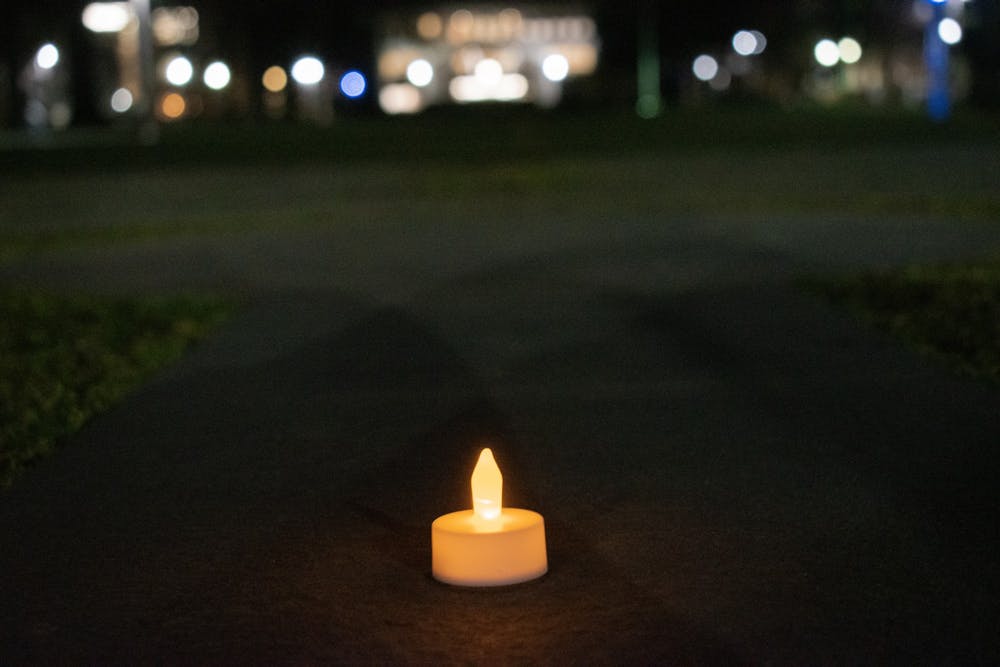Editor’s Note: Jordan Young, The Eagle’s managing editor for news and a member of DSU, was not involved in the writing, reporting or editing of this story.
Night had fallen on American University’s campus over an hour ago. The sprawling quad and academic buildings were dimly lit and silence stretched across the near-frozen grass, cherry blossoms and daffodils still hesitant to bloom in the darkness of early March.
At the Kay Spiritual Life Center, however, this darkness ceases. The steps of the building are well-lit and welcoming, and a group of students convened out front, holding small plastic candles that glowed softly.
The students have gathered to honor Disability Day of Mourning, which occurs every year on March 1 to remember disabled people who have been murdered by their families, victims of filicide. The vigil, organized by AU’s Disabled Student Union, was held on March 1 at 8 p.m.
“It's a day in the [disabled] community to recognize those who we've lost due to ableism,” Henry Jeanneret, the president of DSU, told The Eagle. “It’s to remind ourselves that disabled lives are worth living and are worth cultivating joy for.”
The vigil started with a speech given by Jordan Young, DSU’s social media manager, followed by a shorter speech from Jeanneret. Approximately 10 students were present. The group was gathered closely as Jeanneret read a list of names; the estimated 110 victims of filicide in 2022, although the number isn’t exact as police don’t always keep track of the murders, according to Jeanneret.
“I think about all the people who have been taken from our community, and how I wish I could’ve known them,” Jeanneret said in his speech.
The reading was followed by a moment of silence to honor the victims.
This was the second year in a row that DSU has held a vigil on Disability Day of Mourning. Of the prominent issues in the disabled community at AU, Jeanneret said it was “frustrating” to see people not taking the coronavirus pandemic seriously, not wearing masks and the infantilization and ignorance of disabled people.
“You can take a break from wearing a mask, but your immunocompromised friends can’t take a break from being immunocompromised,” he said.
Jeanneret wishes he would see more “respect” for disabled people on AU’s campus; he wants to show people that disabled lives are worth living, recognizing and celebrating.
“Educate yourself,” he said. “Listening to your disabled peers is an important thing.”
Edited by Zoe Bell and Nina Heller. Copy editing done by Isabelle Kravis, Luna Jinks and Sarah Clayton.





